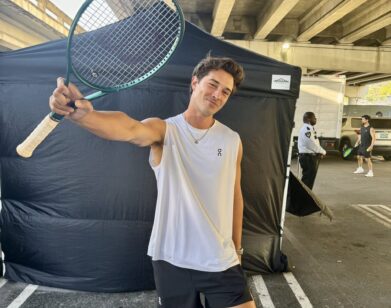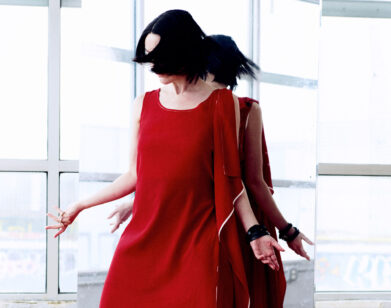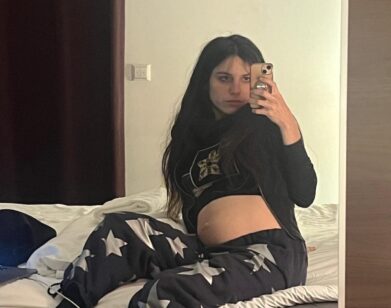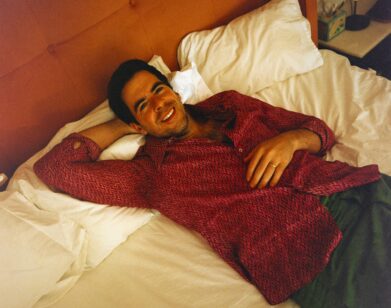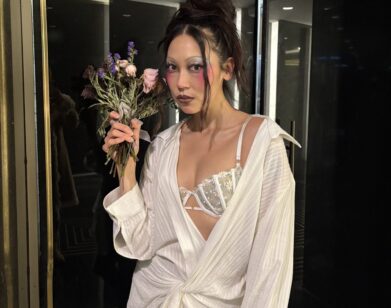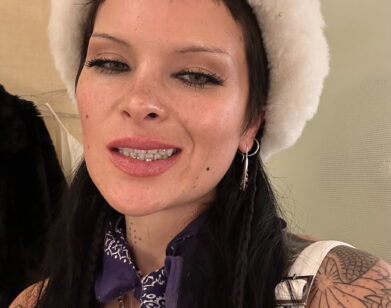Lorely from Los Angeles
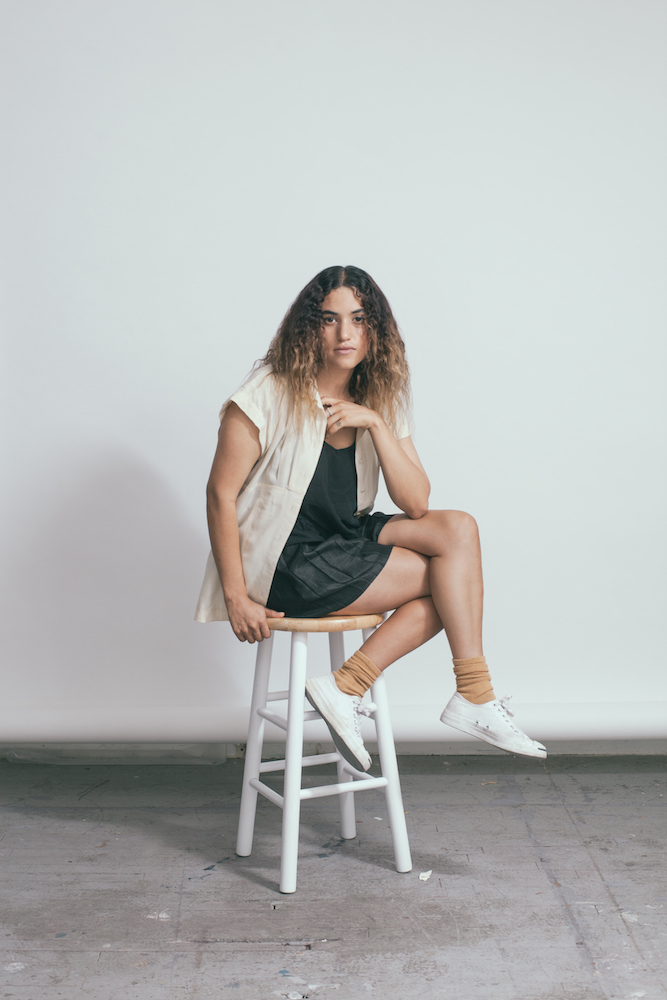
ABOVE: EMPRESS OF. PHOTO COURTESY OF DANIEL DORSA.
When Interview first spoke to Empress Of in 2013, she had just shared her first EP, Systems, following a mysterious debut cassette release, Colorminutes. Since then, the Honduran-American artist, born Lorely Rodriguez, has released her debut album, Me, a project she first unveiled to audiences during self-realized “residencies” at intimate venues in New York and London—an approach inspired by her early guitar-playing days, which were filled with DIY band shows in sweaty basements.
Rodriguez wrote, produced, and recorded Me (via Terrible Records/XL) entirely on her own while isolated at a friend’s home in Mexico. The distance provided clarity to create an album that felt true to her as both a musician and a person. The result is a masterful electronic pop album that discusses togetherness, solitude, catcalling, privilege, and ultimately, personal independence.
Empress Of is currently touring the U.S. and Europe. Today begins the 24-year-old’s three-night series of shows in New York: tonight at Terminal 5, tomorrow at Cameo Gallery, and next Tuesday at Baby’s All Right. We caught up with Rodriguez just before a show at Holocene in Portland.
CEDAR PASORI: What have you done in Portland today?
LORELY RODRIGUEZ: I walked around the city and found a synth store that was next to a homeopathic crystal store. I got my horoscope read then played with synthesizers for half an hour. My sign is in retrograde right now, so the universe is driving me crazy! Then I did my laundry.
PASORI: I like that your “How Do You Do It” video has candid footage of your life on tour, with moments like carrying suitcases or doing your hair quickly before a show.
RODRIGUEZ: Shooting that video was really fun. At first I thought it wouldn’t come out good, since it’s really just the tour. The woman who directed it, Molly Hawkins, convinced me that having footage of me performing juxtaposed with VHS behind-the-scenes tour stuff would be very surreal. One moment you see me in Los Angeles, where I grew up, and the next, I’m shaving my legs in the sink at a venue. As the video speeds up, you almost get tired. It reminds me of my life, why I perform, and why I’m an artist.
PASORI: What was your early music education like in L.A.?
RODRIGUEZ: I studied music for 12 years, and it’s always been very involved. I have an obsessive personality, which is why I can’t do drugs, because I’d be addicted to them. I’m addicted to making music. I’m addicted to learning about music and becoming better.
I first started making music when I was 13. It was such an opportunity to avoid doing all the shitty things that I could have done instead. I was a bad kid. I grew up in Pasadena and got expelled from three different high schools. So I talked to my mom and said, “I could go to L.A. County High School for the Arts. It’s a small school, and that way I can really focus on doing music all the time.”
It was a big turning point for me. All of my mom’s friends’ daughters were getting pregnant when they were 15, and I was going down the road where I was getting in fights in school. So music really saved me.
PASORI: How did you become focused on jazz music specifically early on?
RODRIGUEZ: There’s a Björk song, “It’s Oh So Quiet.” It’s kind of big band-y and reminds me a lot of jazz, so I started downloading other jazz music. I became so obsessed with Ella Fitzgerald and Chet Baker. Then I got into Duke Ellington, and he’s very influenced by classical music, so then I started to listen to classical music, like Stravinsky. There’s that academic kid in me who’s obsessed with things like the jazz record that changed b-bop or the classical record that changed all of modern music.
PASORI: What was it like to be a competitive jazz singer?
RODRIGUEZ: You want to go to music school and get scholarships, so you have to beat all the other kids. You might win first place at a competition and get $5,000 to go to school. If you do a lot of them, then you’re paying for your first year of tuition at college. I paid for my laptop when I was 17 from winning competitions by singing jazz.
PASORI: And then you got a scholarship to Berklee School of Music, right? When was the turning point from doing jazz to electronic production?
RODRIGUEZ: It was in the first year. I got a laptop, and I had a bunch of music programs on it. I went from Garageband to Reason to Logic. When I started using Logic, I knew jazz was over for me. I wanted to make music that sounded like me, but I couldn’t do that within a genre. That’s why pop is my favorite genre, because it’s so vague and open-ended. I love that people are calling Me a pop record. If someone’s calling my record pop, and they’re also calling Lana Del Rey, The Weeknd, and Miley Cyrus’ albums pop, then there’s hope for what people expect to be the norm of popular music.
PASORI: Was there any resistance from your college when you decided to do electronic music instead?
RODRIGUEZ: Well, they had a program for music production and engineering; I was just in the wrong program, and you have to submit demos in order to change your program. The guy I had an interview with said they were “very Imogen Heap,” naming any young female making electronic music. He did what a lot of music journalists do. Now, people compare me to Grimes, FKA Twigs, and Tei Shi, and no disrespect to any of them, but I wonder why they don’t say I sound like Todd Terje or Caribou.
PASORI: Similarly, I saw you tweet about people who’ve questioned your authorship on Me.
RODRIGUEZ: Yeah, yesterday in the van, my band told me about someone who came up to them after a show and asked if I actually produce all of my own music, which I do. People will also ask the band what programs I use, when they could just come over and ask me. Maybe they’re afraid to offend me. I try so much not to have this conversation, because I want to get to the point where it’s not a conversation. You lead by example. Kendrick Lamar says, “Don’t talk about it, be about it.” I’m with that.
PASORI: Do you feel like jazz still informs your music in any way?
RODRIGUEZ: Even if I make pop music, I love doing things that are a little quirky or unexpected, which comes from enjoying the improvisation in classical music and jazz. People always tell me that the string part in “Standard,” where I sing, “Tell me what you see,” right before the chorus, is weird. There is a stereotypical chorus, but I like how I went a little left of center for that part.
PASORI: Why do you feel like your album, in hindsight, had to be made somewhere outside of New York, where you were living at the time? Why Mexico?
RODRIGUEZ: I started to make the record in New York, and it was a shitty record. I was sad. I signed my first record deal, someone gave me money so I didn’t have to work, so I could just make an album. I had four jobs in New York. I was a nanny for two families, and then I taught private lessons for guitar and drums. You gotta pay that New York rent!
When I listen to the demos I made in New York, they sound like a windowless room in a basement in New York, which is where I was living at the time. I didn’t want to tour a windowless room in a basement for two years. I wanted to tour “me,” because I will always be the person I am, but that windowless room in a basement was only a moment in my life.
PASORI: What made you decide on your album cover, a simple black and white portrait?
RODRIGUEZ: I did everything under the sun for my album cover. I got my head 3-D-printed, and we were going to get a 3-D designer to make some crazy things to melt and photograph. I had three different photo shoots, and I talked to sculptors, but everything just looked like something else and only represented a point in time.
Even though it is the 24th year of my life, I know that when I’m older I’ll still struggle with some of the things that a 24-year-old woman struggles with. I have 16-year-old guys and 30-year-old women writing me on Facebook saying things like, “Your record got me through my breakup.” There are universal things that everyone struggles with. That isn’t a 3-D rendered sculpture or some type of pastel, goth thing. It’s just a black and white photo that someone took in 15 minutes. I wasn’t wearing makeup. I borrowed the shirt.
PASORI: You have a close relationship with your mom. How has she inspired you?
RODRIGUEZ: She is an amazing example of how hard you can work to achieve whatever you want. Her hard work meant that I could achieve my dreams to be an artist. She comes from a dirt road in Honduras. She wanted to name me Maria, and I could have been Maria from Honduras. Now I’m Lorely from L.A. who does Empress Of.
PASORI: Though you’re on your own headlining tour now, you’ve previously toured with Sohn, Kimbra, Jamie Lidell, Jungle, and Florence + the Machine. What did you learn about performing from them?
RODRIGUEZ: Watching Florence + the Machine was a big deal for me. She showed me that even if you’re playing to 10,000 people in an amphitheater, everyone’s looking at you, and this is your show, your stage, and your audience. She commands attention; she grabs everyone’s eyeballs, even when she had a broken leg at one point.
Touring with other artists taught me how to give the audience a good show, even if it’s just telling the lighting guy at the venue what you want beforehand. My friend manages another act, and she said to me, “You have to think about everything. You have to move from having one strobe light to the massive show at Terminal 5.”
ME IS NOW AVAILABLE VIA TERRIBLE RECORDS/XL. EMPRESS OF PLAYS IN NEW YORK TONIGHT AT TERMINAL 5 WITH GLASS ANIMALS, TOMORROW AT CAMEO GALLERY, AND TUESDAY, OCTOBER 20 AT BABY’S ALL RIGHT.

